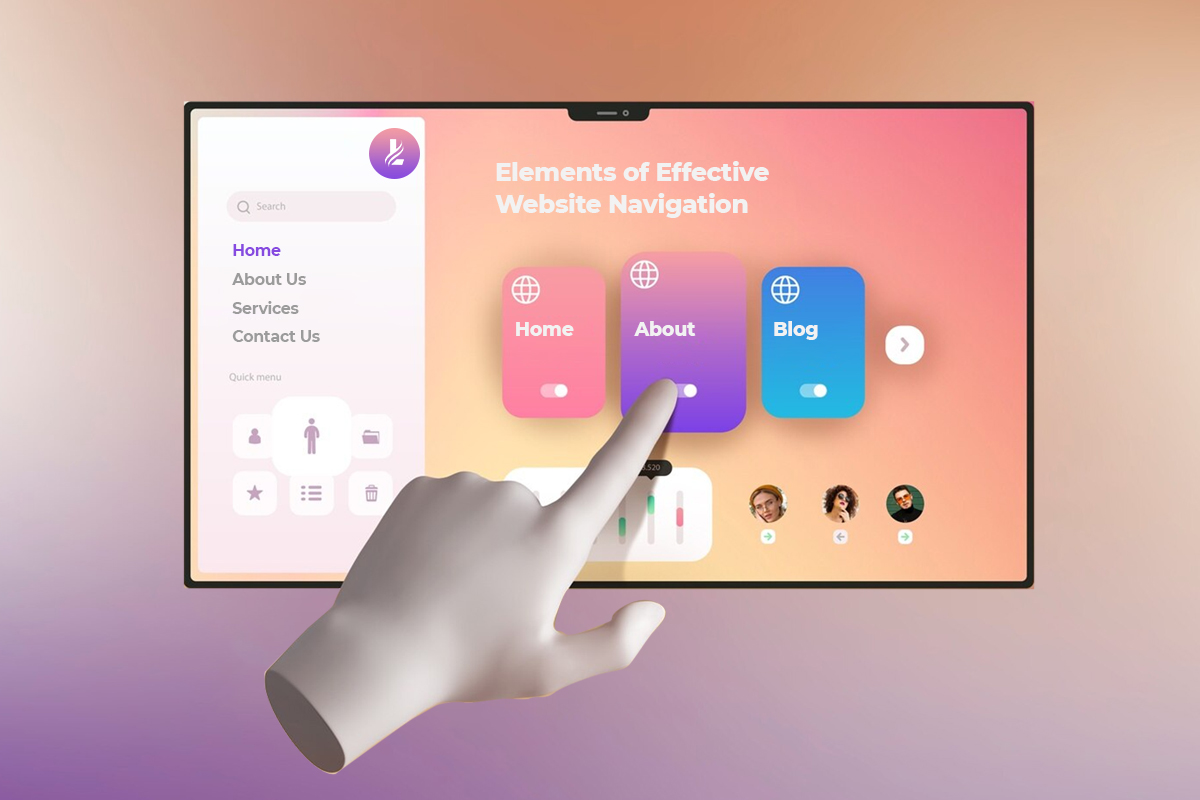
Effective website navigation combines several components that work in harmony to deliver an enhanced user experience. These elements include clear and intuitive menu structures, consistent layout across the website, and accessibility features for diverse users. A well-designed navigation system should make it simple for visitors to find what they need quickly while navigating between pages easily. It should also incorporate responsive design principles for optimal functionality across different devices and screen sizes, ultimately improving engagement, conversions, and brand loyalty for businesses. Structured to Provide Clear and Intuitive Menu Options One of the key components of effective website navigation is creating clear and intuitive menu structures. A well-organized menu enables visitors to navigate easily between pages and sections on a website, providing clear indications to business customers about their location on their journey through different sections and pages. Businesses should keep the following in mind when developing such menu structures:
By offering users clear and intuitive menu structures, business owners can enhance the user experience and make it simpler for visitors to navigate their websites. Consistent Layout on Website Consistency in website layout is another essential component of efficient navigation. A uniform design gives users a familiar browsing experience as they move between different pages and helps strengthen brand identity and create an immersive user journey. Businesses looking to maintain a uniform website layout should keep these things in mind:
By creating an organized layout, businesses can offer users a pleasant browsing experience while strengthening their brand identity. Accessibility Features for Diverse Users Accessibility is a cornerstone of successful website navigation. To ensure users with disabilities or impairments can navigate and interact with a site effectively, businesses should take note of:
Implementing accessibility features into their websites ensures they can reach a wider audience, regardless of any disabilities or impairments that users might face. Frequently Asked Questions (FAQs) What Makes for User-Friendly Website Navigation? A user-friendly website navigation should feature clear and intuitive menu structures, consistent layout, accessibility features, and prioritize ease of use, functionality, and a positive user experience to increase online presence and boost conversions. How Should Website Navigation Be Updated? Website navigation should be reviewed and revised frequently to keep pace with user needs and SEO best practices, which in turn improve user experience, search rankings, and overall website performance. Regular reviews can lead to significant benefits in user satisfaction, SEO rankings, and overall website performance. Can Good Website Navigation Affect SEO Rankings? Yes, effective navigation can boost SEO rankings by improving user experience, decreasing bounce rates, and improving website visibility. Well-structured navigation also enables search engines to more effectively index website content, resulting in higher ranks in search results. What Are the Signs of Poor Website Navigation? Common indicators of subpar website navigation include high bounce rates, poor user engagement, and frustration from visitors. Users may experience difficulties finding information they need and navigate pages differently before ultimately leaving due to a poor user experience. How Can Creativity and Usability in Navigation Design Coexist? Balancing creativity and usability in navigation design involves developing visually engaging elements while making them intuitive for use, aligning with brand identity. The design should enhance user experience.
